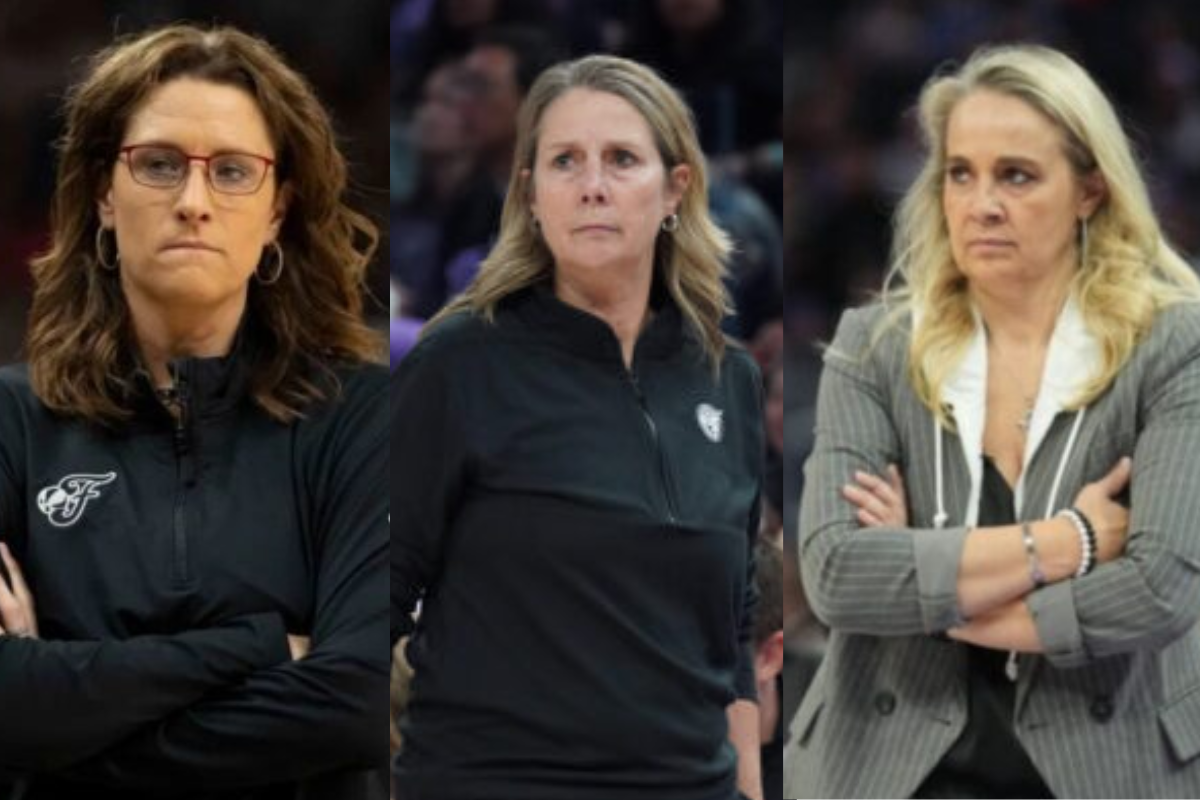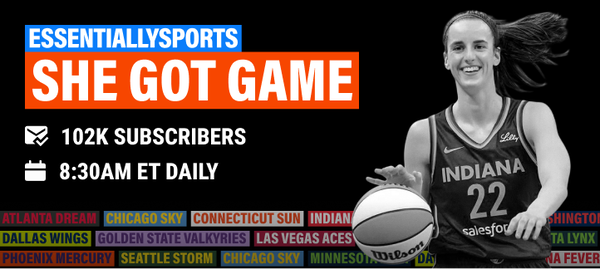
Imago
Credits: Imagn

Imago
Credits: Imagn

Imago
Credits: Imagn

Imago
Credits: Imagn
“We haven’t talked about the officiating all playoffs. We just play and we’re worried about us,” said Mercury’s head coach, Nate Tibbetts. Call that being diplomatic, and whatnot, but Cheryl Reeve is definitely on the opposite end of the seesaw. In case the thought of referee calls and controversies reducing during the playoffs crossed your mind, you’d be very, very far from reality. The furnace continues.
Watch What’s Trending Now!
The moment that changed everything came when Lynx star Napheesa Collier drove from the top of the key. Mercury’s Alyssa Thomas swooped in for the steal but, in the process, made ‘noticeable contact’ with Collier’s leg. The latter fell, twisted her left ankle, and had to be helped off the court, clearly in pain, and no foul was called! That injury led to her eventual exclusion from Game 4, and the cost the Lynx had to pay was nothing short of their title run.
Cheryl Reeve, however, isn’t the only one pointing fingers. Fever’s head coach Stephanie White backed her up, saying, “I think that she made a lot of valid points… You know, a lot of the same kind of conversations are happening. You know, it’s happening from every team, from every franchise, from every coach, from every play. And I think at some point there has to be some accountability.”
Aces coach Becky Hammon also weighed in, adding, “I mean, from what I heard, she did not tell a lie. She said the truth as far as that is concerned. A lot of people thought it wasn’t a foul.”
This isn’t the first time Becky Hammon has voiced her concerns. She previously called out the rough postseason style, comparing it to the NFL, where defenders can grab and bump players without consequences. In her words, movement has become so restricted that it feels “out of control.”
For Game 4, though, the situation only escalated when Cathy Engelbert and Co. “assigned the same three officials to Fever-Aces today that had Game 3 of Lynx-Mercury on Friday. Isaac Barnett, Randy Richardson, Jenna Reneau,” as reported by Scott Agness on X.
New: WNBA assigned the same three officials to Fever-Aces today that had Game 3 of Lynx-Mercury on Friday.
Isaac Barnett, Randy Richardson, Jenna Reneau.
Lynx coach Cheryl Reeve was ejected, then suspended one game for conduct and criticism of the crew & operations.
— Scott Agness (@ScottAgness) September 28, 2025
To put it simply, Reeve has been far from pleased with the entire fiasco. Right after the heated Collier-Thomas play, she stormed onto the court and had to be restrained by her assistants and Natisha Hiedeman. It was the same crew that later suspended the Lynx boss for misconduct and the use of expletive remarks.
“The officiating crew that we had tonight, for the leadership to deem those three people semifinals playoff worth is f—— malpractice,” Reeve said after Game 3. Ironically, out of the four head coaches in the semifinals, three have called out the league’s officiating. The only one who hasn’t is Mercury’s Nate Tibbetts, even though his team plays the most physical style of all. The natural next question that comes to mind is, has the WNBA responded?
Cathy Engelbert had responded to the noise in July during All-Star Weekend. “As we go forward on the officiating, we hear the concerns. We take that employee input,” the Commissioner said. “Every play is reviewed. We spend hours and hours and hours. Obviously, we use that then to follow up with officials’ training.”
But for the recent Collier-Thomas incident in the playoffs, no.
41 fouls bring the referees back to the epicentre of discussions after Aces-Fever Game 4
The Indiana Fever pulled off a huge win over the Las Vegas Aces in Game 4, but the story didn’t end there. The real chatter has been about the fouls. In the four games, there have been 149 fouls total, an average of 37.25 per game.
Compare that to the Minnesota-Phoenix series, which has seen 101 fouls in the same number of games. In Game 4 alone, Indiana went 26 of 34 from the free-throw line, while the Aces managed just 11. That’s more than three times as many opportunities, and it had players and coaches talking.
A’ja Wilson didn’t hold back when she broke down the box score. “I was just looking at the fouls,” she said. “[NaLyssa Smith] had five, Jackie [Young] had five, Chelsea [Gray] had five. That’s very interesting to me because I’m not saying we don’t foul — yeah, we foul here and there — but that’s very interesting.”
Hammon jumped in with a little extra spice: “By interesting, you mean, ‘that’s s—.’” The Aces were tagged with 24 fouls in Game 4, compared to 17 for Indiana, and the free-throw difference made it painfully obvious.
While there’s so much heat on the WNBA referees, has becoming one every crossed your mind? It certainly crossed mine. So, I did the research and voilà.
Becoming a WNBA official usually starts with gaining some experience refereeing in the G League, the NBA’s developmental league. Aspiring refs are scouted from high school, college, and other leagues, then invited to developmental programs to refine their skills. Importantly, they’re evaluated not just on their knowledge of the rules, but also on how well they operate as part of a three-person officiating team. Many WNBA referees also officiate college games.
If a referee crosses a certain threshold of wrong calls, they may not get a game in the playoffs or any higher priority assignment. At the WNBA level, refs are overseen by Monty McCutchen, the head of officiating, while Sue Blauch leads referee performance and development. McCutchen, a former NBA official with 20 years of experience, now serves as the senior vice president of referee development and training, ensuring officials are prepared for the professional stage.
While the referee training system in the WNBA seems flawless, the reality, though, is in front of our eyes.


